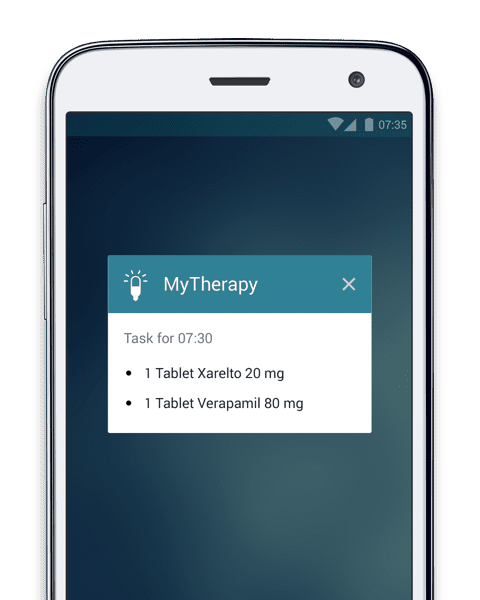Every time Apple host a launch event, the Internet begins to buzz: what are the iPhone’s new specs? What will the new iOS be capable of? How much money is this going to cost me? This year, arguably Apple’s biggest announcement has flown somewhat under the radar: its partnership with Stanford Medical and American Well in helping detect Atrial Fibrillation (AFib) using the Apple Watch 3.
Update – Nov 2017: The Apple Heart Study has now been launched. To find out more, including information about how you can participate, visit Apple's website.
Update – Dec 2018: The Apple Heart Study enrollment ended at the end of July 2018, with over 400,000 participants, and is now in the evaluation phase. The results of the study are expected to be released in early 2019. Since this post was originally published, Apple has had one app for recording an electrocardiogram (ECG) and another for detecting irregular heart rhythms that appear to be atrial fibrillation approved by the FDA. The apps can now be downloaded by Apple Watch 4 owners. To read more about what the Watch and apps do, follow this link:
The background
Many smartwatches include a heart rate censor, the primary purpose of which is for use during exercise. Recently, however, it has been discovered that they can be used as a tool for detecting heart irregularities. A study presented in May of this year found that Apple’s previous incarnation of the watch, combined with specially designed software called Cardiogram, was able to detect Atrial Fibrillation, also known as ‘AF’ or ‘AFib’ with an accuracy of 97%. The study was of more than 6,000 people who contributed more than 139 million heart rate measurements. Apple is hoping to expand on this: for the ‘Apple Heart Study’, the iPhone-maker has joined forces with Stanford and American Well. By bringing together technology, consumer access, and research excellence, Apple Heart Study aims to use Apple Watch for robustly identifying irregular heartbeats like AFib. If they succeed, Apple Watch could become a lifesaver for thousands every year.
What is AFib?
AFib is the most common type of heart arrhythmia: a disease defined by an irregular heartbeat. It’s caused by the electrical impulses that control your heartbeat being sent from different parts of the heart, throwing your natural pacemaker off course. The result is the heart quivering (or fibrillating) 300-400 times a minute, instead of fully contracting 60-80 times as it should. This means blood that should be pumped back into the body can get left in the heart, where it is able to clot. This is where the threat of stroke comes into the equation, because if a blood clot breaks off and finds its way back into the blood flow, it can block an artery and cut off blood supply to the brain. Consequently, those with AFib are at five times greater risk of stroke than the general population.
How can a smartwatch help?
AFib is not currently curable, but it is controllable, particularly when diagnosed early. While AFib symptoms include a racing heart beat or unusual levels of fatigue, in many people it is asymptomatic, and there is a chance that it does not show when a doctor happens to check for it. A recent study of those suspected to be at risk of AFib found that even a 30-day monitoring period was inadequate, detecting the condition in only one quarter of those who actually had it. For the remaining 75%, detection took 18-30 months.
Smartwatches are therefore a massive opportunity to improve detection rates, as those wearing them will usually do so daily for months on end, and do not have to take any additional proactive action. They will simply be notified of irregularities, which can then be investigated by a medical professional.
Why is Apple getting involved?
The idealist’s answer would be to save lives. The cynic’s answer would be to sell more Apple Watches and iPhones. The real answer is likely a combination of the two. The ability to save lives would be a strong and highly promotable proposition for Apple’s wrist-worn devices. Apple’s CEO said as much, describing it as “a business opportunity,” and the medical health activity as “the largest or second-largest component of the economy.” However, he also highlighted Apple’s philanthropic achievements, notably in the education and renewable energy sectors. Ultimately, the message is that if such models bring Apple commercial success while simultaneously helping people, then everyone is a winner (except, perhaps, for Apple’s competitors).
Can other tech help against AFib?
While Apple is looking at innovative hardware to help diagnose AFib, there is already a range of free apps you can download now to mitigate the risk of heart problems. High blood pressure, poor diet, and smoking are all significant risk factors. Apps such as ‘7 Minute Workout,’ ‘Lifesum,’ and ‘Smokefree,’ can be used to help make lifestyle changes that will improve your general wellbeing, while mitigating the risk of AFib.
If you have been diagnosed and been prescribed medication, be it for treating AFib or other health conditions, MyTherapy (available for iOS and Android) reminds you to take your meds on time, while allowing you to track other aspects of your health such as symptoms and vital statistics. All of the information is collected into a health report you can view digitally, or print out.
Would you like to learn more about AFib? Our infographic and blog post is packed full of important information: “Atrial Fibrillation: Learn More About the Leading Cause of Stroke”



